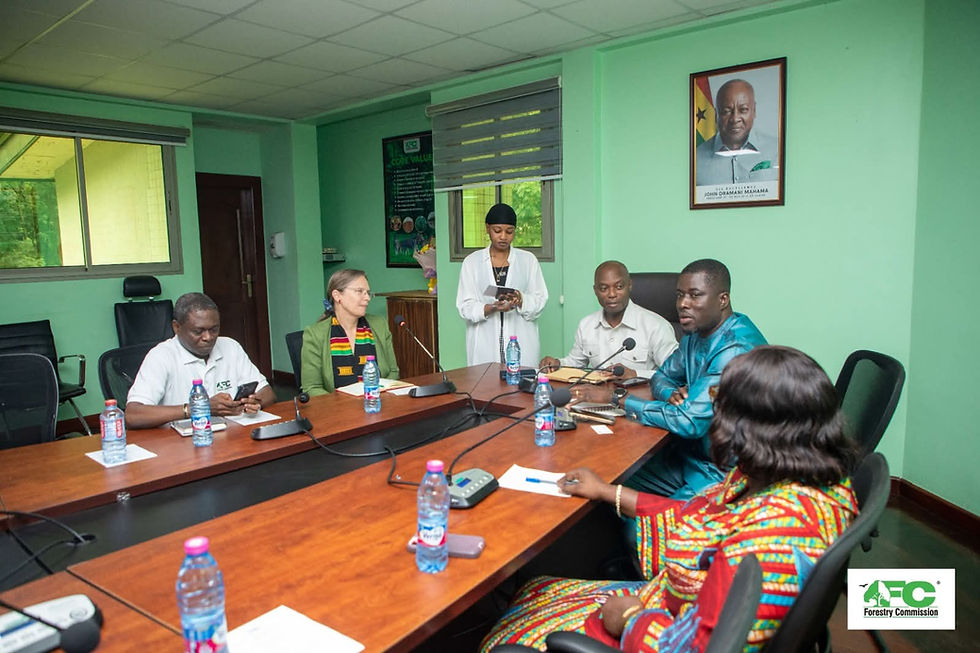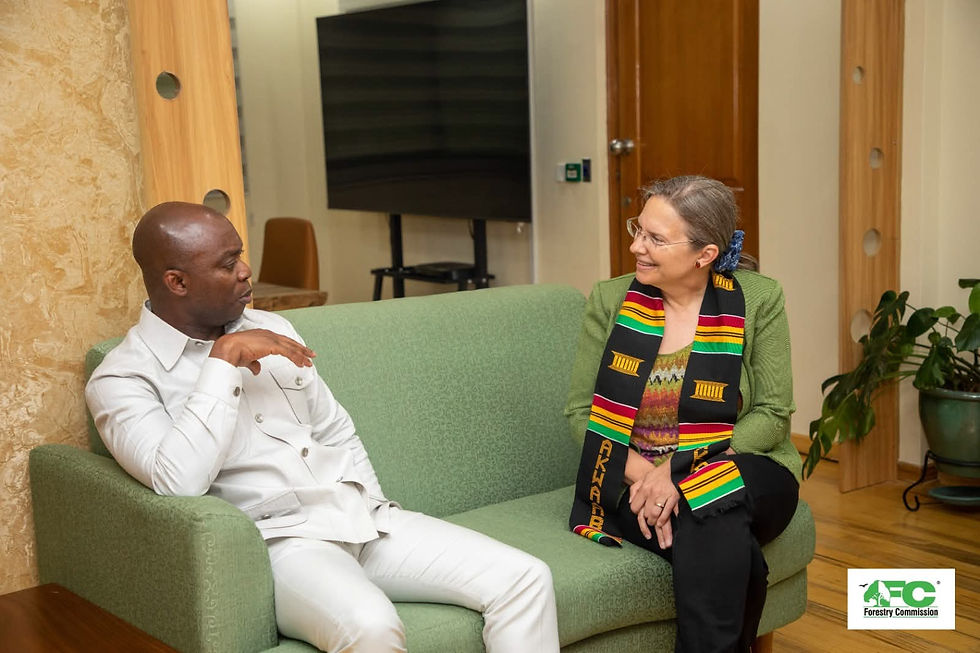"Forest resources must deliver socio-economic benefits to local communities” – Forestry Commission Boss
- Think News Online

- Jul 30
- 2 min read

The Acting Chief Executive of the Forestry Commission, Dr. Hugh C.A. Brown, has reaffirmed the Commission’s commitment to ensuring that Ghana’s forest resources serve not only environmental purposes but also deliver meaningful socio-economic benefits to local communities.
He made this statement during a high-level familiarisation visit by Professor Erin O. Sills, Head of the Department of Forestry and Environmental Resources at North Carolina State University (NCSU), USA.

The visit, held at the Commission’s Head Office in Accra, forms part of efforts to strengthen international collaboration in sustainable forest management and environmental research.
Professor Sills, a renowned researcher affiliated with global organisations including CIFOR, EfD, and Imazon, is currently on an official trip to Ghana aimed at fostering academic partnerships, sharing insights, and identifying potential areas of cooperation in forest governance and sustainability.

Welcoming the visiting scholar, Dr. Brown expressed hope that the engagement would lay the foundation for long-term partnerships that bridge academic research with practical forest conservation strategies.
“We value partnerships that link science with action,” he said.

“And we believe forest resources must ultimately translate into real socio-economic benefits for the communities that depend on them.”
The Deputy Chief Executive of the Commission, Mr. Elikem Kotoko, delivered a detailed presentation outlining the mandate and operational framework of the Forestry Commission.

He traced the Commission’s evolution, highlighting reforms that led to the merger of its constituent bodies.
He also underscored the Commission’s core responsibilities—managing forest resources, conserving wildlife, regulating the timber industry, and promoting biodiversity and ecological integrity.

A major part of the presentation focused on the challenges facing the Commission, including illegal mining (galamsey), forest degradation, insecure land tenure, and threats to wildlife.
Mr. Kotoko outlined ongoing reform strategies, including policy reviews and inter-agency partnerships, aimed at mitigating these challenges.

He stressed the importance of engaging all stakeholders—particularly traditional leaders, local communities, and the private sector—in forest governance.
Dr. Richard Gyimah, Acting Executive Director of the Timber Industry Development Division (TIDD), noted that the visit presented an opportunity to explore future collaborations with North Carolina State University, particularly in areas such as ecotourism and sustainable forest product development.

In wrapping up the session, Dr. Brown applauded the depth of the discussions and the mutual desire to foster research-backed environmental stewardship.

“Our forests must not only be protected for their ecological value but also serve as engines for rural development,” he added.

To commemorate the visit, the Forestry Commission presented cultural artefacts and official publications to Prof. Sills, who in turn offered souvenirs from NCSU.

Both parties expressed optimism that the engagement marks the beginning of a lasting and impactful partnership dedicated to the protection and productive use of Ghana’s forests.
Story by: Joshua Kwabena Smith








Comments